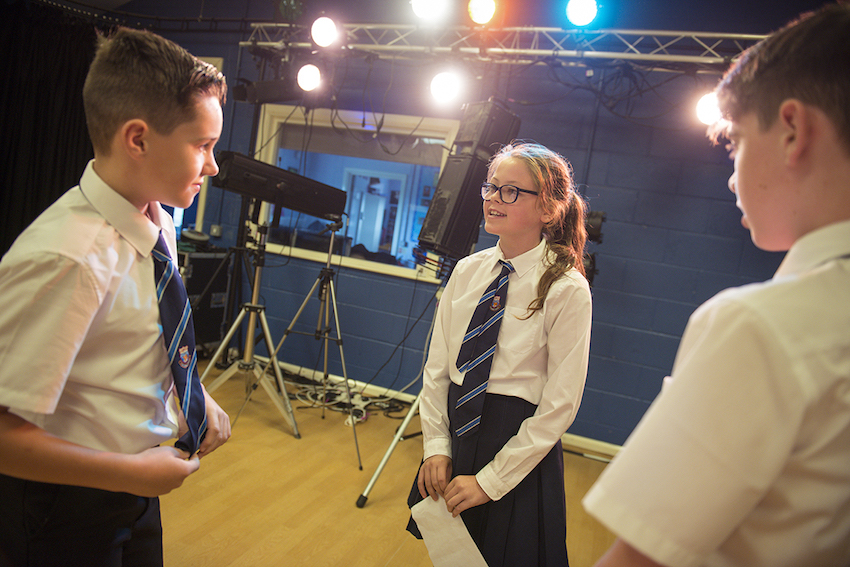Drama

Drama
Department Aims
Within Drama, students are given the opportunity to learn and develop a wide range of performance skills. Additionally, there is a key focus on working as a team, communication and creativity. Students are encouraged to perform regularly in front of their peers, building confidence and public speaking abilities.
Course Content Overview KS3
At Key Stage 3, a varied content is taught, with units including: pantomime, physical theatre, mask work, Shakespeare, improvisation, contemporary theatre and devising. Specific focus is given to developing students’ communication skills and ability to create work as a group. Emphasis is placed on using feedback to improve work, and students are assessed throughout the creative process.
Course Content Overview KS4
GCSE Drama allows students both practical and theoretical knowledge of the theatre. Students study a set play, evaluate a piece of live theatre, and take part in practical assessments of both scripted and devised work. Throughout each of these, students must be able to use critical thinking and justify why certain theatrical techniques are effective.
How we Stretch and Challenge our students in Drama
In Drama, students’ confidence and abilities vary significantly and it is important that this is recognised. More able students are set extension tasks and are expected to give feedback and direction to others to help them improve. At Key Stage 4, students are all aware of their predicted, and aspirational grades, and are consistently directed back to this during feedback.
How we support our students
Students who are anxious about performing are offered the option of doing so in front of smaller groups, while those who are more confident have opportunities to perform in front of other classes. Students have the option to book extra rehearsals at lunchtime in order to prepare for assessments
How we deliver Literacy and Numeracy in Drama
Literacy is an integral part of drama, whether this is using scripts, evaluating work or most commonly: developing speaking and listening skills. Opportunities for embedding numeracy are also recognised, particularly within starter activities.
Exams
There are no formal exams at Key Stage 3, with practical assessments taking place on a half termly basis. GCSE Drama has an internal and external practical assessment, and a written exam in Year 11.
Staff List
Mrs G Hill – Head of Drama
Extra-curricular activities
All year groups are also offered the chance to participate in extracurricular Performing Arts, and showcase their work in front of an audience. Year 11 are offered the opportunity to help direct and choreograph other year groups.
- Year 7 Drama Club – Thursday (alternating weekly between lunch time and after school)
- Year 8 Drama Club – Wednesday (alternating weekly between lunch time and after school)
- Year 9 and 10 Drama Club – Tuesday (alternating weekly between lunch time and after school)
How parents can support their children in Drama
Homework at Key Stage 3 is primarily practical based, such as organising additional rehearsals. Parents can help to support their children by helping them to learn lines and discuss students’ performance ideas. Additionally, parents’ support in attending invited performances is greatly appreciated, as this is an excellent opportunity to see what the students have been working on.
Links
http://www.aqa.org.uk/subjects/drama/gcse/drama-8261

